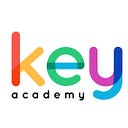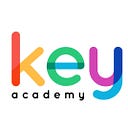No need to hurry child development
Being in the emergent stage is a legitimate place for a child to be when they develop a new skill.
Sometimes parents and early childhood professionals don’t get it. We look at our young children bobbing their heads up and down or scribbling and we think, “When will he start doing the real stuff like walking or printing?” We sometimes think children are just playing at tasks and the real learning comes later.
A more realistic and informed perspective would be to think about growth and change in terms of competence or mastery of skills. Educators use the concept of the Instructional Hierarchy, which can be applied to acquiring any skill, whether it is walking, printing or driving a car. The four stages include:
- Acquisition
- Fluency
- Generalization
- Adaptation
Early childhood educators might compare the first stage, acquisition, to what is called “emergent” skills. These are skills children need to accomplish before they can proceed to the next skill level. For example, the first stage of learning to walk is getting control of the head. Once an infant can control the movements of their head, they can go on to sitting upright, balancing on all fours, creeping, crawling, pulling themselves up and balancing on their feet, and finally taking steps. So when they are bobbing their heads about, they are working on an emergent skill related to walking. Scribbling is an emergent skill of printing, just as babbling is an emergent skill of speaking.
All emergent skills are critical to developing mastery of a skill. Being in the emergent stage is a legitimate place for a child to be when they first practice a new skill. It is not helpful when we push our children to tackle more complex skills when the child is in the emerging stage. It would be like asking a driver’s training student to compete in the Indy 500 race — not a good idea for anybody.
In response to ever-increasing pressures from some elementary school educators, we are being forced to think about getting our children “ready” for formal education. We may feel the need to rush the natural learning processes for our children and push them to acquire new skills while they are still in an emergent stage. We would be well-advised to think about the words of Magda Gerber, a child therapist and infant specialist. “Magda Gerber developed a revolutionary philosophy of infant care based on treating infants with respect and trust in their abilities to develop naturally at their own pace.”
Childhood is not a race to see how quickly a child can read, write and count. It is a small window of time to learn and develop at the pace that is right for each individual child. Earlier is not better.
Written by Kittie Butcher and Janet Pletcher — December 15, 2016
This article was originally published here by the Michigan State University Extension: https://www.canr.msu.edu/news/no_need_to_hurry_child_development
Find out more about KEY academy on Instagram, Facebook, Twitter and LinkedIn

